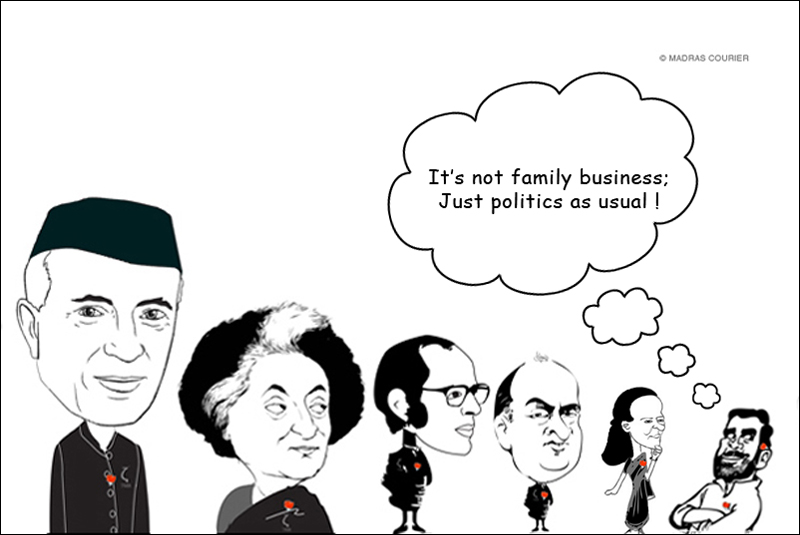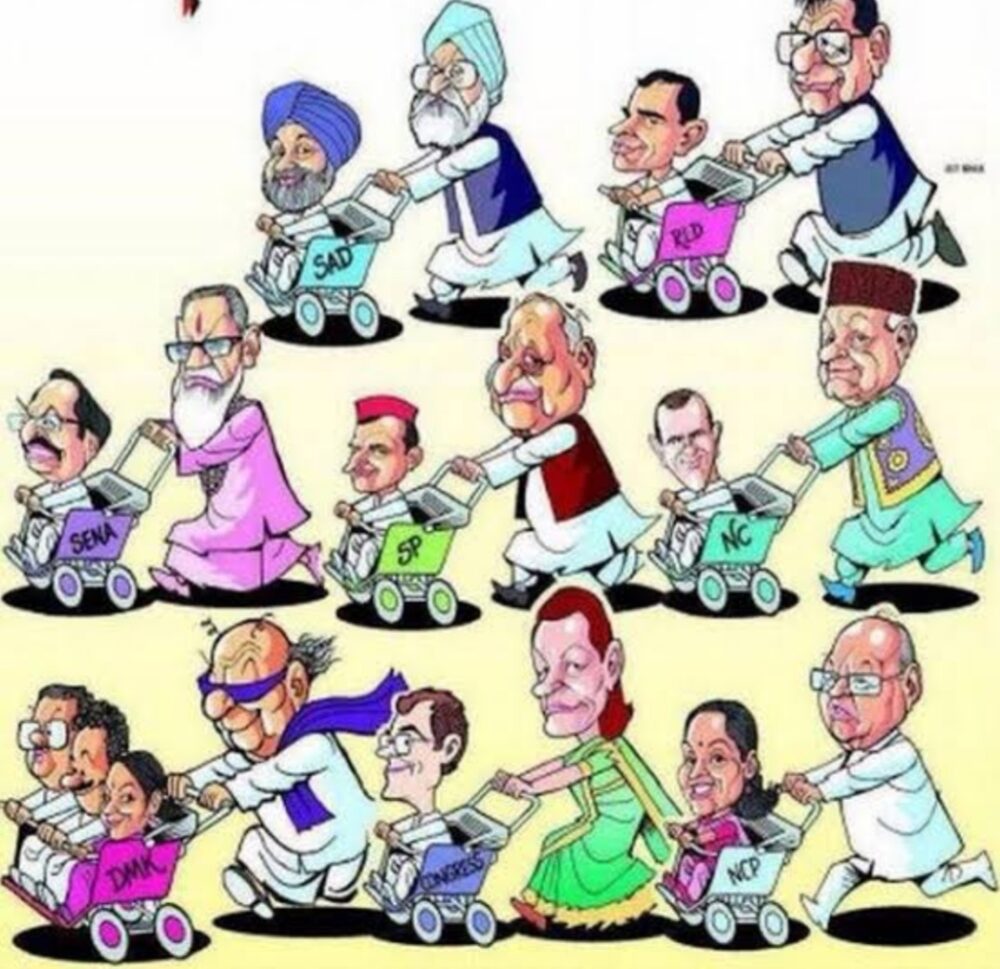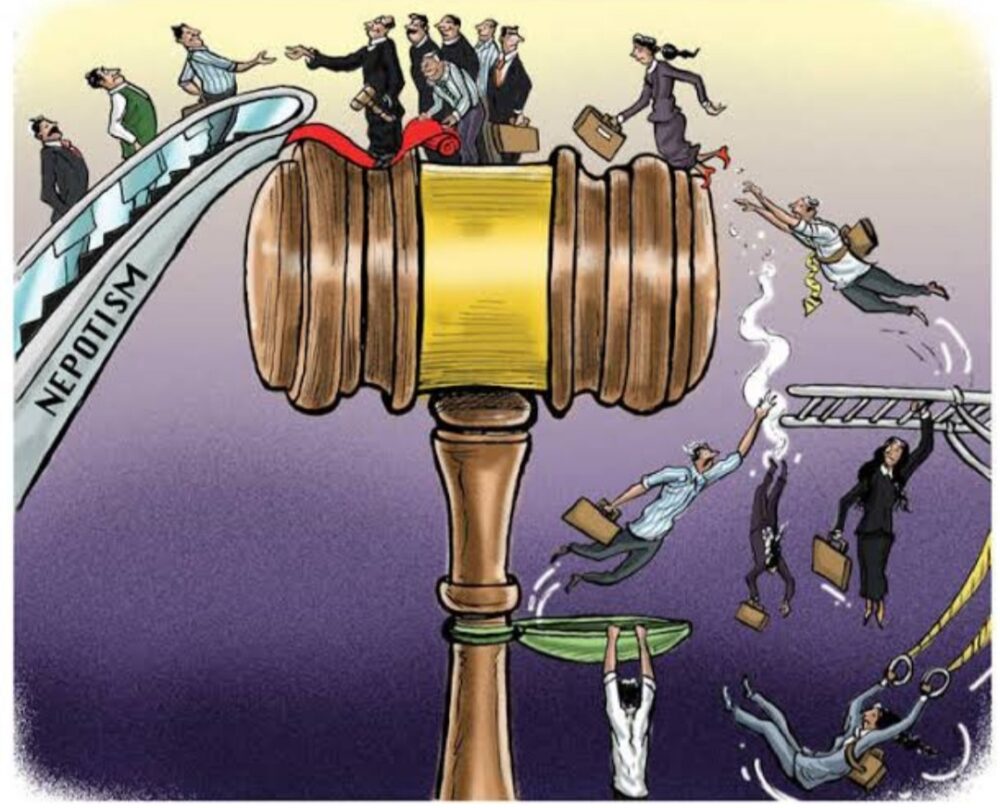Triggered after the death of actor Sushant Singh Rajput, a month ago, nepotism has been brought into the mainstream. Though it was limited to the film industry but is gradually being highlighted in the sphere of politics like never before. The debate has been forever, from funds over minds, popularity over deliberations and family over the nation. How many times have we seen people entering politics not because they aspired to but because they were ‘Elite’? For how many more years are we going to witness vibrant shades of corruption and inequalities? And when will the curve of stereotyping be flattened? Answers to certain questions never move ahead of bowed silent heads.

Statistics don’t lie:
Three years ago, author Patrick French, in a study of the Indian Parliament, revealed some troubling statics. He found that 100 per cent of MPs in the current lower house of Parliament( the Lok Sabha) under the age of 30 are from families with a political background, a fact that would be astounding anywhere else in the world. That’s right, 100% under the age group of 30. Drastic! MPs who were aged 40 and above, two-thirds were ‘hereditary’.
He said, “If the trend continued, it would be possible that most members of the Indian Parliament would be there by heredity alone, and the nation would be back to rule by a hereditary monarch and assorted Indian princelings.”
No doubt why independent candidates find it so burdensome to get elected in one of the most unequal societies surrounded by uncertain social differences and caste hierarchies, covering its reproduction of favouritism by being the largest democracy, how ironic! The popularity of veteran leaders of national political parties often wins over young and intellectual figures.

Multi-party politics or multi favoured politics?
The Indian National Congress( INC) founded in 1885, holding the tag of being the oldest political association of India is merely reduced to what we call today as ‘Nehruvian ancient regime’ and the Gandhi family, its mascot. The disruption in the governance of several states considering Rajasthan and Madhya Pradesh is a tribute of favouritism. The Gandhi family takes it as its privilege, switching one followed by another for the post of party president neglecting all other eligible members.
The current regime of Bhartiya Janta Party(BJP), looking ahead of naming the decade after its rule had a big swipe in Haryana polls. The Chief Minister’s statement that they have succeeded in overcoming corruption and nepotism proves to be shallow since the political dynasties of Haryana are not driven by the ideology, but by the goal of holding the power and keeping the rivals out of the scene. However, the regional parties are more dynastic than a right-wing political spectrum, we can’t let go of the fact that BJP gave the ticket to late External Affairs Minister, Sushma Swaraj’s sister. Why? Of course, popularity and favouritism again.

Profound activists and active social workers are never truly given any possibility to become a voice, instead, as soon as their potential is recognized, their political career comes to ruins. Syed Umar Khalid, a former student & member of Jawaharlal Nehru University, currently associated with two groups – Bhagat Singh Ambedkar Student Organisation and United Against Hate and a former Democratic Students’ Union leader in JNU as well. Also, Kanhaiya Kumar, a former president of the Jawaharlal Nehru University Students and presently National Executive Council member of Communist Party of India and many others. The list of certain capable personalities who could have brought a revolution with their outspoken leadership qualities and could have been renowned politicians with their modern tactics is never-ending, had they ever been given a chance for the same. Instead, detention is served on their plates!

Between the battle of two elites, the regional political parties suffer
Regionalism is substandard when we talk of development but on the contrary, its essential to maintain the cultural, ethnicity and linguistic values of a particular region, mainly for a diverse community and population living in such a country like India. Such attributes can truly be upheld by a group of people belonging to that particular region.
But the battle between the ancient Nehruvian regime and the new elite has left no way for regional parties to flourish and hold power and when they do, it’s either coalition or defection!

India is one of the most unequally distributed countries in the world with the 1% richest holding more than four times the wealth of the bottom 70%. Nepotism gives way to ‘an axe to grind’ attitude in political leaders who have been elected for the betterment of the nation.
But when the ‘hereditary’ rulers keep their eyes shut and pockets open, inequalities and social miseries take birth. G. Sampath, a journalist wrote, “In a hypothetical society of perfect socio-economic equality, each individual’s nepotism reserves would cancel out that of everyone else’s.”
But since it is far from reality, the downtrodden will continue to suffer, walking long distances to reach home as the pandemic cleared the picture more accurately. Until socio, economic and political inequalities are stabilised and affirmative actions are taken, nepotism will continue to spread its roots deeper in the Indian society flowering injustice and discrimination.
[zombify_post]



